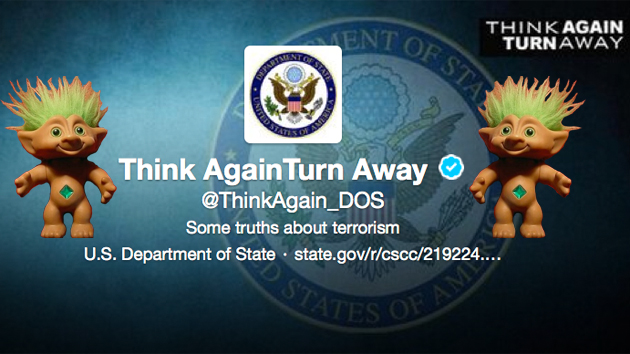
Courtesy of FX
The espionage, sex, and family matters of the Cold War are back on your TV. Season two of The Americans—which airs 10 p.m. EST/PST on Wednesdays on FX—advances the saga of KGB officer Elizabeth Jennings (played by a terrific Keri Russell) and her husband and fellow Soviet spy, Philip (Matthew Rhys, the “Welshman who plays a Russian playing an American“). Their marriage was arranged by the KGB during the Khrushchev era, and the two live in an upper-middle-class neighborhood outside of Washington, DC, with their young daughter and son, in the early Reagan years. Oh, and their neighbor is an FBI counterintelligence agent.
The Americans is one of the best shows on television, and one thing that made the first season so good was its mining of Cold War history for intelligent suspense drama. The episode “In Control,” which revolves around the attempted assassination of President Reagan (and the whereabouts of the nuclear football, and then-Secretary of State Alexander Haig’s “I am in control here” quote), is wonderful. The first season also uses Reagan’s budding “Star Wars” initiative in a story arc. Furthermore, Philip’s (ongoing) second marriage to FBI secretary Martha Hanson (Alison Wright) is based on real-life instances of KGB agents marrying the secretaries of government officials to obtain information.
“We can’t make the claim of teaching a history lesson, but it can be a springboard for learning about the fascinating real history,” says Joe Weisberg, the creator of The Americans who also happens to be a CIA veteran.
And this year, the series prominently incorporates two major episodes in Cold War history. In an early scene in the season’s opening episode, “Comrades” (which aired in late February), Philip poses as an American spook and meets with two Afghans in Virginia. The two men are in town to secure funding and support for the mujahideen during the Soviets’ disastrous and devastating war in Afghanistan. After a brief chat, Philip shoots the Afghan freedom fighters and reminds them that “the KGB is everywhere.”
Later in the season, Elizabeth comes to the aid of a panicked Nicaraguan agent working in Washington (her cover is that she’s from Costa Rica). As Elizabeth leaves, she tells the agent that her country’s Sandinista revolution was “beautiful” and that it served as a foothold in Central America for the Soviet Union.
Weisberg says that these elements—Soviets in Afghanistan, US covert assistance to the mujahideen, Sandinistas, the Contras, the CIA, and the Reagan administration—will return, and help shape the second season. “We’re in the early days of the Soviet war in Afghanistan, and the United States’ not-so-covert action in that war—and that’s definitely going to be a theme,” Weisberg says.

“The Contra war in Nicaragua is going to be another theme,” he continues. “I can’t say too much, but [those two factors] will be closer to a frame for the season than just background.”
This is all drawn from intensely controversial chapters in our history. But don’t expect this season to deliver a strong condemnation of the politics of either side. The people running The Americans aren’t here to refight the battles of the 20th century.
“For those who have not watched the show and wonder about rooting for the Soviets or rooting for the KGB, look, we know totalitarian socialism failed with the collapse of the Berlin Wall,” says executive producer Joel Fields. “So we know what happens. This isn’t at all about rooting for a government or ideology.”
In truth, the show is far more about Elizabeth and Philip’s marriage than spy games and international tensions. “Our show is political in the sense that characters are motivated by deep political convictions that they are willing to die for,” Weisberg says. “But in terms of evaluating it in terms of liberal or conservative, it is absolutely apolitical. We don’t feel those issue are interesting or relevant to the show.”
Here’s a teaser for season two of The Americans:








